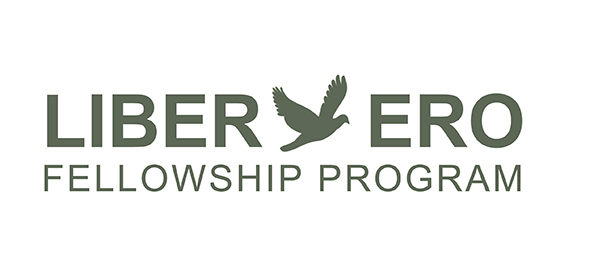Early-career researchers in Canada’s science-policy landscape: barriers and opportunities
Author(s):
Laura Coristine, Jeremy Pittman, Richard Schuster


Laura Coristine, PhD
Liber Ero Postdoctoral Fellow
Faculty of Environmental Design
University of Calgary

Jeremy Pittman, PhD
Liber Ero Postdoctoral Fellow
SESYNC Social Science Immersion Fellow
University of Waterloo

Richard Schuster, PhD
Liber Ero Postdoctoral Fellow
Department of Biology
Carleton University
It is likely that a review of fundamental science will spark a clamour of calls for ever more funding from all researchers. However, we believe that early-career researchers are getting lost in this clamour, which threatens the diversity of views required to advance rapid and innovative lines of enquiry in all facets of Canadian research. Early-career researchers, such as postdoctoral fellows, play a vital role in Canada’s evolving science-policy landscape; they bring fresh ideas and perspectives to science and outreach, which can spark the development and spread of innovation to the benefit of all Canadians. We argue for balance to be restored to the funding system, so that Canadian research supports a diversity of views and creative output in the sciences.
As Liber Ero fellows, participants in Canada’s top-tier postdoctoral program in conservation sciences, we have gained some specific insights into the process of effective funding through the unique support offered by a Liber Ero Postdoctoral Fellowship. We outline some of the pertinent considerations that the Canadian Minister of Science should consider during the review process.
Revising the balance sheet for funding
Postdoctoral researchers face undue pressure from low early-career research funding, scarce prospects for future academic positions, inadequate health benefits and frequently non-existent coverage under CPP and EI1. Between 2002 – 2011 the number of available NSERC postdoctoral awards was nearly halved, yet the number of postdoctoral applications more than doubled 2. As of 2011, success rates for postdoctoral funding applications were sitting just under 10%, with a declining rate of tenure at Canadian institutions relative to United States institutions. The most striking fact: even as postdoctoral researchers faced declines in support, all around funding through NSERC increased by nearly 1.5 times during the same time frame 2. To compound the issue, postdoctoral researchers may apply for NSERC only once, only within the first two years post-PhD, and not to any other tri-agency funding programs in the same year. Yet, the scarcity of academic career opportunities has many researchers working in the nebulous and poorly funded realm of post-PhD and pre-professorship for up to 6 years 3. While reducing investment in postdoctoral fellows may reduce costs in the short term, over the long term, such an approach inevitably erodes fresh perspectives for tackling many of today’s pressing challenges and further, causes many young scientists to leave Canada in search of funding. The current process of postdoctoral funding support is no longer selecting the cream off the top, but rather leading to attrition of top-performers because opportunities are so severely constrained.
Support for life-stage transitions
Current funding mechanisms and program requirements often produce barriers for early-career researchers that are establishing academic careers while balancing young families, reducing their ability to effectively participate in the advancement of science, policy and innovation in Canada. Distinct life stages or circumstances typically coincide with an early-career research phase; too frequently postdoctoral researchers must make substantial sacrifices that involve either reducing future career potential or leaving academia in order to maintain balance in day-to-day life4. Take, for example, the current barriers for postdoctoral researchers starting a family. Funding program policies, in relation to parental leave, have been vastly improved over recent decades. However, Canadian policies still lag far behind countries such as Austria or Norway and produce substantial challenges for early-career researchers. For postdoctoral fellows, parental leave options from NSERC provide a maximum of 6 months paid leave, even in cases of pregnancy complication or multiple births. CIHR provides the same – contingent on fund availability. SSHRC provides no parental benefits. Moreover, many Canadian postdoctoral fellows on other funding sources have limited or no access to parental leave. Given today’s economic climate, this produces almost impossible circumstances for young families. Further, options for part-time research (and funding) opportunities are rare or simply unavailable, despite the potential for such opportunities to support transitions for early-career academics who are also juggling the responsibilities of a young family.
Support for career establishment
The scarcity of academic positions and the high level of importance accorded to publications leaves many pre-faculty researchers scrambling after manuscripts rather than academic growth. Networking, collaboration, skills development, and leadership are important foundations for an academic career and long-term publication track-record, yet these aspects are rarely part of a postdoctoral research program. Equipping the next-generation of scientists with qualifications and credentials suited to modern-scientific inquiry should not simply be left to chance. Funding agencies drive the attainment of scientific research and have the capacity to start that process even earlier through provision of training options for early-career scientists. The recent MITACS Canadian Science Policy Fellowship is a promising new program that offers early career training. The Liber Ero program provides two weeks of intensive skills training annually, with collaboration embedded in participant research programs. Focused training, and career development through collaborative opportunities, should be a component of every postdoctoral and early-career position.
Diversity in research representation
The structural characteristics of Canada’s fundamental science funding programs create potential imbalances in the representation of certain groups (e.g., gender, life-stage, and ethnicity) within emerging cohorts of early-career researchers with many potential implications for the future of Canadian research. Further, the limited support for families, the strong competition for fellowships, and the perception of few job opportunities turns many young scholars away from research in Canada, particularly so for women and for postdocs with families. Yet lack of representation also extends to the pursuit of novel research. Under the current funding formula, researchers are incentivised to adopt tried and true approaches – not to take the risks required to progress science at a pace commensurate with global changes. Innovative research, conducted by early-career researchers with the capacity for high impact (e.g., that incorporates citizen science participation, consensus approaches, and integrative management), falls through the cracks because it often does not fit neatly into one of the Tri-Council funding categories. Further, without access to their own research funds, postdoctoral researchers are hampered in their ability to pursue novel and creative research goals. Incentivizing early career researchers to focus primarily on well-established projects (that fit into discrete research silos) does not permit the lateral thinking necessary to spark true innovation.
Recommendations
There is a fine line between challenges that encourage the pursuit of excellence and those that become insurmountable through a cumulative and progressive impact that erodes researcher time, focus, and capacity. Current funding and support for postdoctoral fellows falls into the latter category, and heightens academic barriers during early-career stages. Simple changes to funding programs could yield significant benefits. We propose the following improvements:
- Increase funding for basic research by postdoctoral fellows (number and amounts of awards) and re-evaluate criteria and conditions for early-career applicants.
- Provide opportunities for part-time postdoctoral work and institute parental-leave policies that support work-life balance.
- Provide postdoctoral fellows with research funds that may be used for project-specific infrastructure, training, and support (including soft-support items such as child care during conferences, training, and workshops).
- Refocus funding policies to promote a diversity of research perspectives and remove compartmentalization between the tri-council funding agencies.
Perhaps the most crucial of all is to remember that review sometimes means starting from first principles, instituting best practices gleaned from across the world. We are not simply speaking of reinventing the wheel of fundamental science but instead we advocate re-envisioning the start and end points that a career in science requires. Canada’s funding programs must be reformed to remove barriers faced by early-career researchers, with the end-result being a more creative, supportive, and innovative science landscape in Canada.
REFERENCES
1 Mitchell, J.S., Walker, V.E., Annan, R.B., Corkery, T.C., Goel, N., Harvey, L., Kent, D.G., Peters, J., Vilches, S.L. 2013. The 2013 Canadian Postdoc Survey: Painting a Picture of Canadian Postdoctoral Scholars. Canadian Association of Postdoctoral Scholars and Mitacs.
2 National Sciences and Engineering Research Council of Canada. “2010-2011 Facts and Figures.” http://www.nserc-crsng.gc.ca/_doc/FactsFigures-TableauxDetailles/2010-2011Tables_e.pdf Accessed September 1, 2016.
3 Powell, K. The future of the postdoc. Nature 520, 144-147 (2015).
4 Van Balen, B., van Arensbergen, P., van der Weijden, I. & van den Besselaar, P. Determinants of success in academic careers. Higher Education Policy 25, 313-334 (2012).
More on the Author(s)
Laura Coristine, Jeremy Pittman, Richard Schuster

